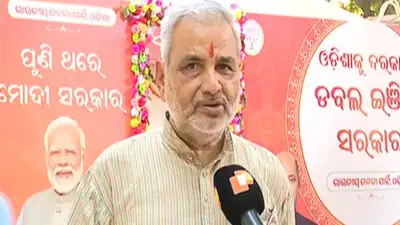Recommended Stories
"I had to place the Budget in a situation where there is uncertainty in the international world (and) high food inflation - though in terms of percentage it has come down from 20.2 to 9.3 - but still it is unacceptable level," he told reporters after unveiling the Budget for 2011-12 in the Lok Sabha.
Through the Budget proposals, Mukherjee added, he also tried to signal reforms without making any dramatic announcements.
"I wanted to convey a strong signal towards reforms ...
reforms not in dramatic announcements but (by) addressing those issues (which can improve) governance and delivery," Mukherjee said.
Referring to rising inflation, the minister said, he tried to address the problem by allocating resources and come out with schemes to augment supplies of pulses and edible oil.
"We have taken special programmes - about six-seven programmes - to be implemented under Rashtriya Krishi Vikas Yojna. I have allocated resources and schemes are being worked out for pulses, edible oil, providing fodder for the cattle, green revolution in Eastern India."
To check high prices, he said, "we have to remove the supply bottlenecks and therefore the agriculture response should be to improve the supply bottlenecks".
The minister further said that use of information technology in dealing with issues concerning income tax would "bring revolutionary changes in the tax compliance, tax administration".
The Budget, Mukherjee said, also sought to move ahead on the path of fiscal prudence by controlling expenditure and reducing fiscal deficit. The minister proposed to reduce fiscal deficit to 4.6 per cent of the Gross Domestic Product in 2011-12 from 5.1 per cent estimated for the current fiscal.
"I have conveyed the message in this Budget that we shall have to resort to fiscal prudence and fiscal consolidation should take place," he said.
On implementation of the Goods and Services Tax (GST), the minister said, "It would be possible (to implement it) with the cooperation of my colleagues in the states. We would be able to move towards GST."
"It is not just for casual mention. We shall have to go to GST and we shall have to address the concerns of the states. I am not insensitive to the concerns of the states," he added.












